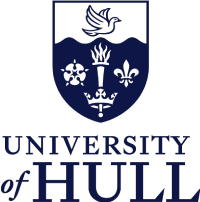Prof M Mozzon-McPherson
No more applications being accepted
Funded PhD Project (European/UK Students Only)
About the Project
Cluster Awards
3 PhD Scholarships in the area of Music Composition, Music Performance, Music Psychology, Music Theory and Analysis, Chinese Studies, Cultural Studies, Translation Studies, Applied Linguistics/Second Language Acquisition.
Summary of Cluster
This set of research projects aims to investigate a range of phenomena and practices, in two distinct cultural settings (initially Hull/UK and Tianjin/China) emerging in response to creative artefacts and experiences rooted in music and Chinese language(s).
In the first instance, the initial set of phenomena/practices (each to be examined in the two distinctive cultural settings) will explore research questions emerging from the Chinese Whispers choir. These will include the following three projects (further expanded below):
1. Creation of Cross-Cultural Music-Language Artefacts;
2. Emotional and Experiential Responses to Choral Singing in a Second Language;
3. Reception of Cross-Cultural Music-Language Artefacts in Performance
Summary of PhD Project 2
Scope: Music Psychology, Cultural Studies, Second Language Acquisition
This project aims to investigate the emotional experiences of music performers learning a second language through the medium of singing. The research will build upon previous research about listeners’ responses to music (e.g. Juslin & Sloboda 2001; 2011) and strong experiences with music (SEM) (e.g. Gabrielsson 2011) as well as reports on the socio-emotional benefits of group singing (e.g. Page 2014). It will also contribute to second language learning theories (e.g. Mitchell et al. 2013) and issues about context and culture in language learning (e.g. Byram & Grundy 2003). The successful PhD candidate will contribute to addressing one or more of the following research questions:
1. What emotional experiences are reported by singers when rehearsing and performing songs in a non-native language?
2. How do these experiences change as the repertoire and language become more familiar during the learning (rehearsal) process?
3. How does this pedagogic approach (i.e. learning a language through singing) impact upon second language acquisition (SLA) and language for specific purposes (LSP)?
Emphasis will be given not only to the experiential use of song in second language learning, but also to singing as a means of enculturation. The researcher will develop innovative interdisciplinary research methodology as part of the project as well as promote satellite clusters for research in translanguaging, SLA/LSP pedagogy, emotions and creativity.
Applicants should have a 2.1 or 1st-class undergraduate degree (or equivalent) in either Music and/or Chinese Studies or related discipline (e.g. Translation, Psychology, Applied Linguistics, Second Language Acquisition) and a Masters degree (preferably with Distinction or equivalent) and/or relevant experience. Some knowledge of Chinese might be an advantage.
Successful applicants will be informed of the award as soon as possible and by 2nd April 2018 at the latest.
Funding Notes
Studentships will start on 17th September 2018.
Full-time UK/EU PhD Scholarships will include fees at the ‘home/EU' student rate and maintenance (£14,553 in 2017/18) for three years, depending on satisfactory progress.
Full-time International Fee PhD Studentships will include full fees at the International student rate for three years, dependent on satisfactory progress.PhD students at the University of Hull follow modules for research and transferable skills development and gain a Masters level Certificate, or Diploma, in Research Training, in addition to their research degree.

 Continue with Facebook
Continue with Facebook

